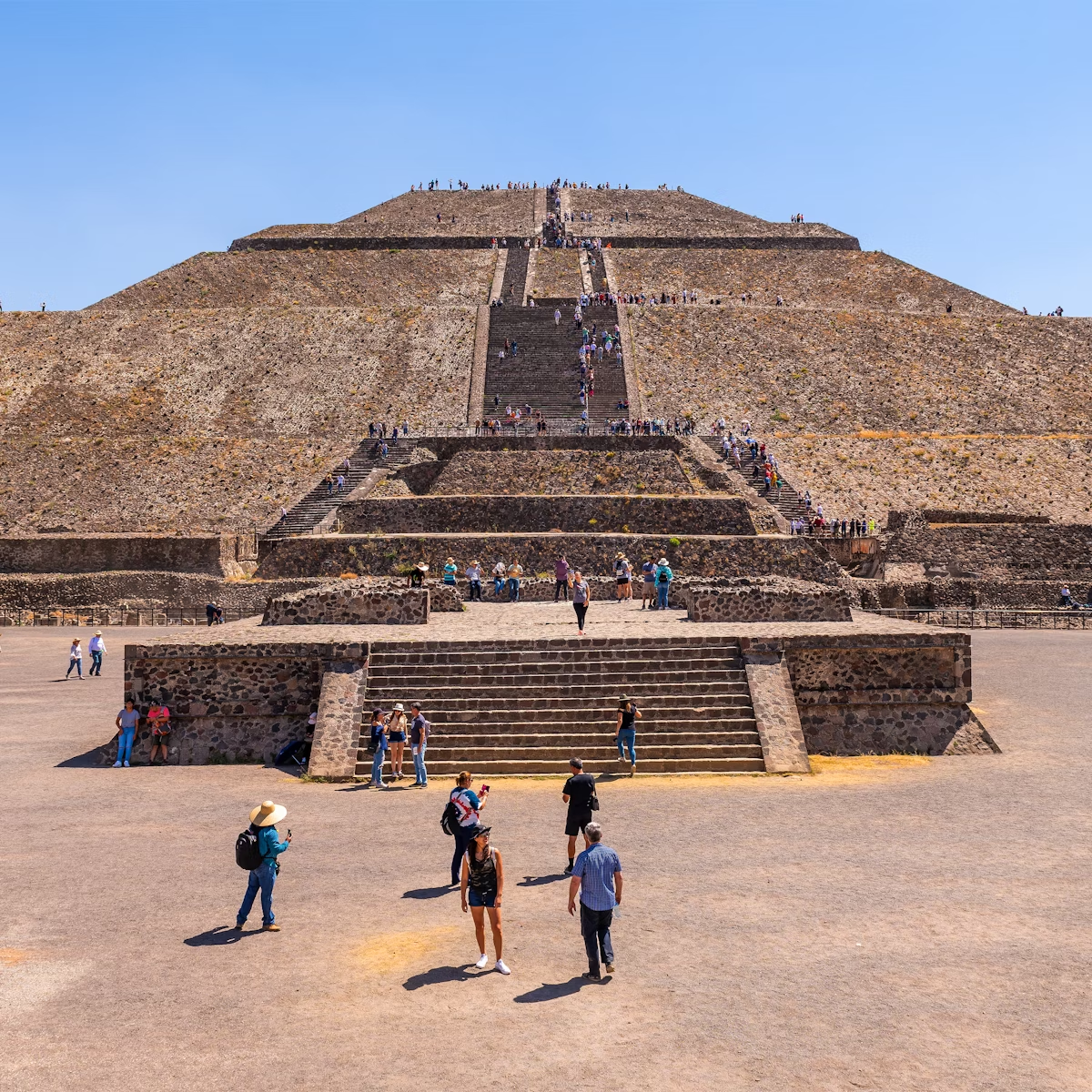Teotihuacán's third-largest pyramid is the most ornate. The four surviving steps of the facade (there were originally seven) are adorned with striking carvings. In the tablero (right-angled) panels, the feathered serpent deity alternates with a two-fanged creature identified as the fire serpent, bearer of the sun on its daily journey across the sky. Imagine their eye sockets laid with glistening obsidian glass and the pyramid painted blue, as it once was. On the talud (sloping) panels are side views of the plumed serpent.
The fearsome plumed serpent is a precursor to the later Aztec god Quetzalcóatl. Some experts think the temple carvings depict war, while others interpret them as showing the creation of time.







